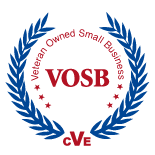8 Things You Must Know When Buying an Air Compressor
Most people searching for an air compressor know exactly what they need the air compressor to do but have no idea what specific industry standards the air compressor should meet in order to perform at the level they desire. When shopping for an air compressor, you need to ensure that your new machine can keep up with your business. Here are the 8 things you need to consider and ask your 3C sales representative about:
1. Electrical Requirements
An electrical schematic and electrical data sheet should be reviewed and power verified before any air compressor purchase. You need to have the proper breaker/disconnect rated for the amperage requirements for the electric motor (motors) running your compressor. You also need to verify the wiring that is running from your breaker/disconnect is rated for the electrical demand. If you are moving up in compressor size due to expansion, it isn’t always as simple as removing your old machine and installing new.
2. Single Stage or Two Stage Reciprocating Air Compressors
The cylinders of a single-stage air compressor pump air directly into the tank, whereas in a two-stage air compressor, the air is pumped from one cylinder to the other before it enters the tank. The primary reason for purchasing a two-stage compressor is for high-pressure air because as the air travels from one cylinder to the next, the pressure nearly doubles. Pressure achieved through most single-stage compressors is normally 90-130 psi. When changing to 2 Stage, you typically need 150-250 psi. The most common 2 Stage machine we offer at 3C has a cut in pressure of 145 psi and cut out pressure of 175 psi, with units capable of up to 250 psi.
3. Compressed Air Storage
Tank sizes are measured by the gallon but the size of the tank has nothing to do with how much air your machine will produce. If your machine has the proper motor and pump, then you should never run out of air. Tank size is of importance depending on how your machine will be used. In peak demand times, it is important to have additional storage. Most air compressors are offered tank mounted up to 30-50hp. If additional storage (larger tank, or remote tank downstream at usage point) is needed please schedule a site visit with one of our representatives to discuss your needs and to size accordingly.
4. Air Pressure (PSI)
Air pressure is rated at pounds per square inch (PSI). Depending on your application, your PSI required can vary. Air Tools are most commonly rated for 90 psi. In a facility only using air tools, you can size your machine for 125 psi to account for pressure loss between your compressor and usage point. It also doesn’t hurt to have a few extra atmospheres in storage. Just be careful on having too much PSI. The higher the pressure, the higher the electric bill.
5. Cubic Feet Per Minute (CFM)
This is the most common metric used to calculate the volume of air leaving the air compressor. Keep in mind that the CFM can change based on the PSI used for the job. If it is not stated on the machine, you can estimate getting about 3-4 CFM per HP out of your machine at 100 psi.
6. Duty Cycle
This is a measurement used to indicate how many minutes, out of a 10-minute period, your air compressor can run continuously. The duty cycle is usually expressed as a percentage. For example, a 50% duty cycle compressor can run for 5 out of 10 minutes continuously. Not abiding by the duty cycle recommended can have multiple effects on your investment. If you undersize your compressor, it will cause your machine to run too often, pass oil, over heat, etc. If you oversize your compressor, it will cause your machine to not run hot enough, condensation can form in your oil, etc. It is important to know and understand the duty cycle because this also has a direct impact on how much you can get done on a day-to-day basis with your air compressor. A 75% duty cycle is the average for an industrial compressor, but some may run at 100%, meaning it is okay to use continuously.
7. Desiccant Dryers and Refrigerated Dryers
Moisture problems should be avoided at all costs! They deteriorate your equipment and cause the need for expensive repairs. There are ways to eliminate moisture from your discharge air depending on the dewpoint that you need to achieve. Make sure that you have the proper inline filtration paired with your dryer to ensure top performance. Refrigerated Dryers use a cooling process to drop your air temperature causing the moisture in the air to form and be eliminated. The air temperature is then brought back up upon leaving the dryer. The average dew point achieved with a Refrigerated Dryer is 37-39 degrees F. If you need to achieve a lower dew point, then you need a Desiccant Dryer. Most desiccant dryers use activated alumina in a chemical process that absorbs moisture from the air and achieves a -40 degree dew point. The moisture absorbed is then purged from the dryer. You can find all the dryers we have available here. Talk to your 3C representative to find out which would pair best with your machine.
8. Service After the Sale
Make sure that you purchase a unit that has the local support team in place after the sale to take care of your maintenance and repair needs. All air compressors will need routine maintenance and at some point corrective maintenance. During these periods you will have downtime. Make sure you choose a compressor that has local support and access to the parts needed to keep downtime to an absolute minimum.
Our experts at 3C are happy to walk you through all your air compressor options. We pride ourselves on personalizing every piece of equipment we sell to ensure you are getting the highest quality machines best suited for your business applications. Our goal is to always provide you with the greatest lifetime value and lowest lifetime cost. Once you purchase your air compressor with us, we become an extension of your business and are available to you 24/7 for repairs, maintenance, and emergency air compressor rentals. You can even finance your equipment with us! Contact us to discuss your business needs and for a free quote!





